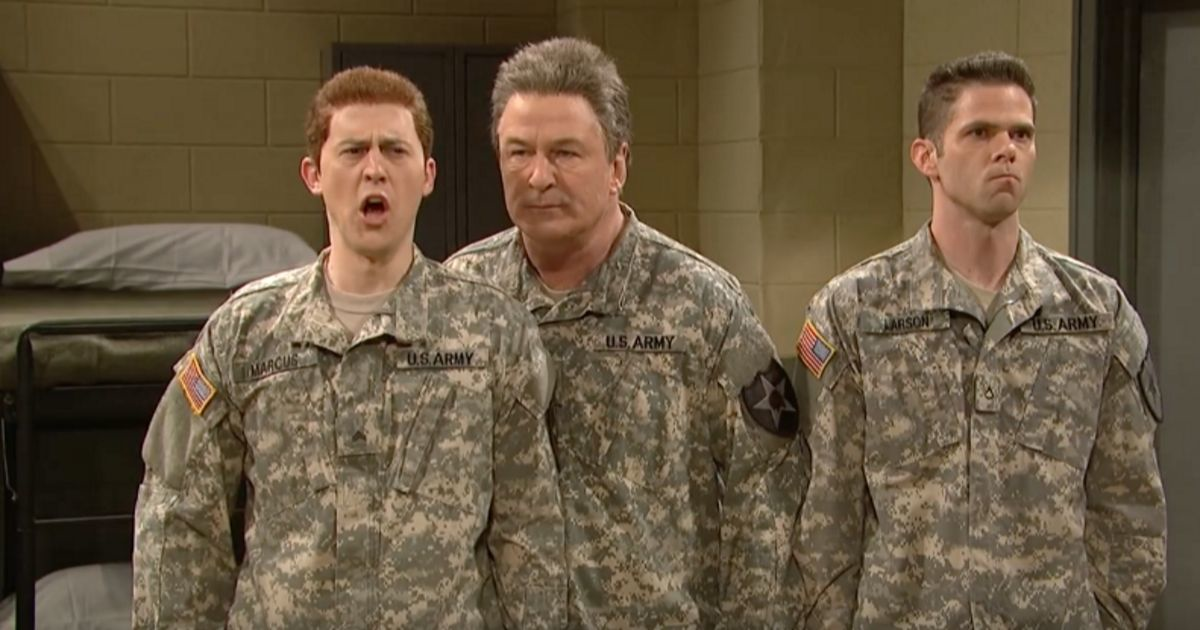Army Reserve and the National Guard
Welcome to the Reserve Component of the military. The uniforms may look the same, but the atmosphere is far more relaxed. It will likely be a welcome break as you transition into civilian life.
The best piece of advice? You are in charge of your own destiny. Whether that means staying in for awhile or getting out as soon as possible, you are in charge of yourself. So much happens in a single weekend that it’s easy to push things to the side. Plenty of CDRs will not give two shits about you if they know you’re here to get out. Self advocate, and take shit from nobody.
Second best piece of advice? Get anything you are pursuing in writing. We all know the value of the paper trail, but the transition time is hectic. Some military members forget, get promised something by the OSMs, and end up drilling 300 miles away. You are stepping into a new world where nobody knows you, with an entirely new culture. Most importantly, there are no branch managers. You alone know what will be best for your transition. Get it in writing!
If you want to do your time and get out:
Find a unit close to home. The component doesn’t matter. If your weekend duty station is closer to home, your life will be that much easier. Shorter commute = more time to yourself. Many reservists commute 4, 5, even 8 hours across state lines to their stations. Unfortunately, it’s normal.
Reserve/Guard units are located all over the place. Do your research and network with Army Reserve Career Counselors and National Guard Officer Strength Managers (OSMs) to get locations. These people have billet information that will be hard to discover on your own. Find out which units are where, and which billets are available. https://currentops.com/units/us/army is your friend. When you find your ideal unit, get a letter of acceptance (LOA) in writing.
Ex: You are an Engineer and want to move in Virginia and attend George Mason University. While the Army Reserve 299th Engineer Company is located at Ft. Belvoir, its BN (463rd EN BN), is in Wheeling, WV, (5 hours away!). High likelihood that the games commence you end up driving a long time to drill. An entire National Guard EN BN is located in Fredericksburg, VA, just an hour from the school. Do your research!
Still a long drive? Choose the Army Reserve. Even if you get stuck in a unit with a crazy commute, the Army Reserve has travel reimbursements up to $300-$500 as well as Lodging in Kind (LIK). These benefits are great but not guaranteed. You should coordinate them before you get to the unit with your unit full-timers. Get it in writing.
*It may differ by state, but in general the Guard won’t give you anything. Been told to deduct my mileage off my taxes to get a benefit (which, you can do if you live over 100 miles away from your unit, but still, not cool). Lodging is cots in the armory, meals are MREs.
Weekend duty isn’t really weekend duty. Your “weekend” duty will also include Fridays, or even Thursdays. And depending on your unit, Sundays may end at 5pm or 9pm, and that drive home can be a bitch. Some CDRs don’t care how far away you live. Remember, it’s still the Army, and the games will be played no matter which component you choose.
You can still get Tricare. Tricare Reserve Select is a great health plan for that first year; it’s familiar, doesn’t cost much, and still covers a lot, so long as providers in your area accept it. In general, it’s about $29-$50 for and individual and $240-$250 for a family. It will eat into your drill check, but until you have access to good health insurance (through your job) it can be a great option. More info is Here and Here.
USERRA has its limits. Uniformed Services Employment and Reemployment Rights Act (USERRA) will protect you from unjust action by your employer for doing your weekend duty and 2-week summer training. What it won’t protect is your reputation or your grades. Time management is your ally:
Be as open as possible with your employer or professors about your commitments. Find out your duty schedule as soon as possible and provide it (in writing) to your supervisor or academic advisor. How you go about it is key: stay humble and get your work done before you leave.
***If you really want to solidify relations with your employer, nominate them for a Patriot Award. Honors your supervisor and helps avoid service-related work problems.
Remember you have a 2 week duty obligation in the summer that can eat into good internships. Talk to your command and let them know your life plan; some units will allow you to perform other duties (like a 2 week TDY school) that will satisfy your 2-week obligation if it interferes with a good internship. Some units will simply look at it as a way to keep money and will waive the requirement. It’s important to be open and communicative. Make it easy for your command to understand why it is necessary for you to miss AT.
The ESGR is a great resource that all reserve military should know:
The full-time staff are responsible for everything. On paper, 10% of reserve components unit are full-time Active Guard Reserve (AGR). In reality, you’ll get 3-4 people to service a company sized unit. Your local full timers are far more helpful than S1 though, they can be your biggest advocates if you need anything. Be tactful in how you deal with them; they have a lot on their plate.
Military resources become less available. Your nearest Active Duty base will be far from your home/unit. Reserve Centers and Guard Armories are not equipped with benefits counselors. They’re barely equipped with government computers. Take advantage of the services on post before you leave.
*Beware of National Guard State Tuition. You may think it’s a good idea to use the National Guard state tuition assistance to help pay school. Beware! Most states will tack on an additional 3 years the minute you take a dime. (If you want to stay in though, some states have killer programs. Louisiana Guard will straight up exempt you from paying tuition up to a master’s level degree, Geaux Tigers)
If you want to stay in:
There could be a few reasons you want to stay in, whether it be for the Healthcare/Pension/Rank/Career etc. Whatever your reasons, it’s your life. If you choose to stick around, great! Guard and Reserve have significant leadership opportunities, like aviation partnerships with civil fire/rescue and law enforcement, cyber units that do network defense, and even SF selection for you hardos out there.
Know this though: the higher your rank, the more you’ll be asked to do military work outside of your “weekend” duty. This work is often uncompensated. But talk with your unit and make sure you know the process for submitting a 1380 form. This form captures work outside of your reserve weekend.
Unit Transfer: The transfer process is easier in the Reserve than the Guard. Because the Army Reserve is a Federal Service centrally managed by HRC Ft. Knox, most of the transfer will involve an open billet and an “OK” from the CDR. The Guard will require you to submit an Inter-State Transfer (IST) packet to State G1, (a big pain in the ass) and they may not even release you. Every state is different and losing manpower on the books never looks good to Guard CDRs. They will likely fight you to retain you every step of the way.
FEDREC: National Guard officer promotions is a raging dumpster fire (and you thought active was bad). NG officers must be confirmed by Congress with Federal Recognition (FEDREC) for each rank (because NG is still a type of state militia, your state could make you a General tomorrow if it chose to). Delayed promotions are commonplace, which results in lost pay and time in grade.
But hey, if you still want to Go Guard, I would recommend Texas, Utah, California, Ohio, West Virginia, Maryland, North Carolina, New York, Colorado, Georgia, or Florida in no particular order. These states have bigger Guard formations (and budgets) or specialties that make their programs more visible, and therefore better run.
Ex:
Texas – 20,000 Guardsmen, $101.1 mil budget
Pennsylvania – 15,500 Guardsmen,
Utah – 19th SFG HQ, $70.4 mil budget
West Virginia – 20th SFG HQ
Georgia – 11,000 Guardsmen, Cyber Center of Excellence
Colorado – Future Space Force HQ at Peterson AFB (seriously, no joke).
*Contributing author is a defense contractor with a good company putting him through a master’s in cybersecurity and has been a National Guard JMO for 5 years.

